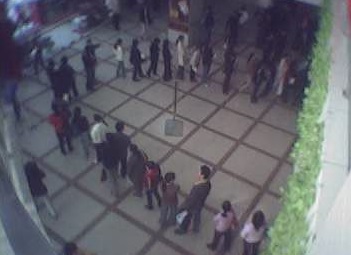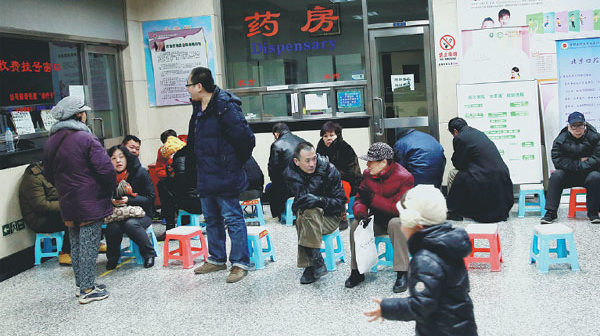Ticket scalping, also known as ticket touting, is the act of reselling tickets bought from licensed sellers and selling them at a price determined by the seller. In China, ticket scalpers (called huang niu, or “yellow cow”) are not limited to doing shady business in front of concert halls and sports stadiums, but are more commonly found in front of hospitals and railway stations. It is common practice for hospitals in China to only accept walk-ins with a ticketed waiting system (gua hao) rather than schedule visits. The practice has opened a new market for ticket scalpers in and around well-known hospitals, or hospitals that are very specialized.
Since China lacks pediatricians and healthcare in rural areas, people will crowd to large cities like Beijing for better medical services. The problem is exacerbated because smaller and newer hospitals are often not trusted, causing rural folk to travel for hours or days for medical advice. It’s not uncommon to see people line up outside a hospital at the break of dawn, wait for the entire morning, and leave without an appointment ticket. Hospitals pre-calculate the amount of time each patient requires and assign the number of tickets per day accordingly. Doctors often work overtime, squeezing in returning patients, patients who have traveled from afar, and the family and friends of their guanxi network; but there are only so many hours in the day.

Peace Maternity Hospital
Ticket scalpers take advantage of the high demand in Beijing, charging at least three times the normal cost, often buying out all the tickets and leaving waiters no choice but to buy from them or wait indefinitely. Many ticket scalpers have inside contacts who help them purchase the tickets before they open to sell to the public, robbing ordinary citizens of their chance of quick affordable care.
Earlier this year, a video of a woman in line at Guang’anmen Hospital criticizing a ticket reseller went viral. The ticket scalper was trying to sell her a RMB 300 ticket for RMB 4,500. The woman was understandably upset over having brought her sick mother to Beijing, renting a basement room near the hospital for RMB 130 a day, carrying her paralyzed mother to the hospital every day, and still failing to get an appointment with a specialist for her mother. What’s worse, the woman was later harassed by the thuggish ticket scalpers, making her too scared to return.
This year, as a result of President’s Xi’s anti-corruption initiative, authorities have been cracking down on ticket scalpers, arresting over 240 in Beijing alone. Arrests include hospital staff, usually security guards, who were bribed by ticket scalpers. Beijing hospitals have updated the scheduling system, with many hospitals allowing for phone and internet reservations. Some hospitals have increased security, throwing out suspicious ticket scalpers, and others have encouraged patients and their family members to report ticket scalpers who disguise themselves as patients.
However, experts say the problem will not be resolved unless demand is quenched. As long as China suffers from a lack of hospitals and doctors, a waiting system that fails to prioritize patients who face a time limit, and a middle class who’re willing to pay more for privileged access, the practice will continue. Currently, the high demand for medical services is in conflict with the low costs of a consultation with a physician (as low as RMB 10), allowing gangsters to pocket the difference that should go to hospitals and physicians (who aren’t earning enough as it is).
Photos: Flickr, Zou Hong / China Daily




